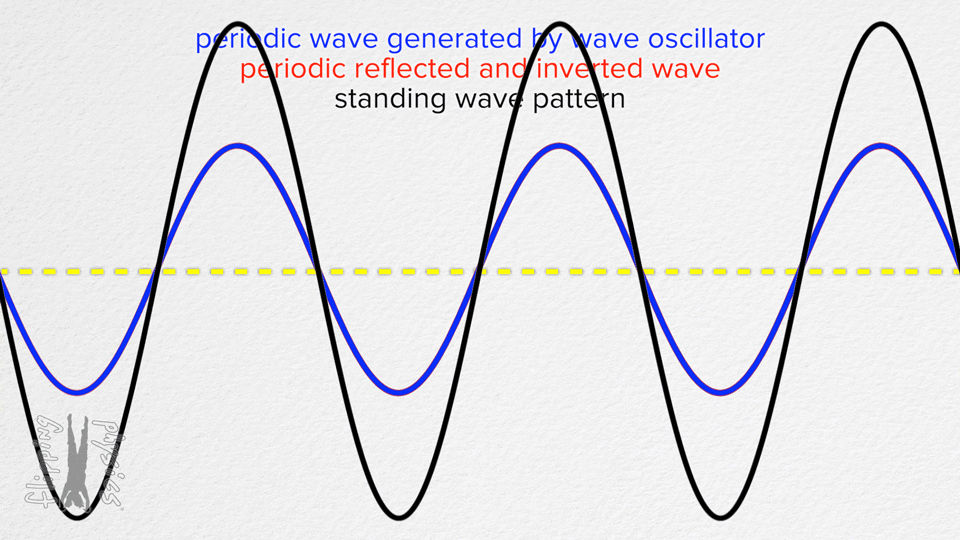Güney27 wrote: ↑Thu Dec 14, 2023 1:52 am
Ashvin,
Isn't it a good idea to think in the following:,, instead of asking how this thing works and how it is composed, I should ask, what idea and truth, does this object embody?"
If we interpret the Bible in this way, we can come to the conclusion, that the world is like written language, I.e meaningful. Or that language, is a microcosmic representation of the world.
In the beginning, God created the heavens and the earth. 2 The earth was without form and void, and darkness was over the face of the deep. And the Spirit of God was hovering over the face of the waters.
3 And God said, “Let there be light,” and there was light. 4 And God saw that the light was good. And God separated the light from the darkness. 5 God called the light Day, and the darkness he called Night."
In modern times we would discard this as some form of poetry. Or as something unscientific.
But there is something symbolic in this sentence.
We can interpret heaven and light as intangible spiritual meaning, and earth as matter (light as the expression of meaning is something that steiner has talked about, if i'm remember precisely).
Not as a duality, but as a polarity.
Spiritual meaning becomes tangible trough expression in matter (form).
In a macrocosmic level it is the manifestation
of the world.
In a microcosmic level, it is the thinking process wich confronts the given.
Thinking makes the world (matter) intelligible, it elucidates it whit Spiritual meaning, so we come to knowledge.
Trough thinking trough Genesis we can understand our own cognition process (microcosmic) and the divine language, the world which embodies meaning which we can't read (macrocosmic).
I think that this type of thinking is good for the modern consciousness, because it can give meaning to the world and get on outside of the box of materialistic thinking, and strengthening faith in the spirit (world).
I can't do much right now with Steiners interpretation of the Bible right now, it remains abstract to my current thinking.
I think a symbolic way of thinking like the pageau Brothers practice it, can get one into deeper layers of meaning of the scriptures (I don't know if it gets one into the deeper layers of the wc).
What is your opinion on that?
I agree, Guney, it is a good starting point and it is wise to patiently work our way through symbolic thinking. I only mention a caution because a lot of modern people tend to get stuck at that level of interpretation, whereas we can certainly go deeper. By going deeper, we connect the Cosmic symbolism with our intimate stream of experience.
As Steiner said, the symbolic interpretations can become quite
arbitrary over time if we remain with the intellect. In some cases, like the Genesis story, it is relatively easy to get a symbolic sense of the language, but in other parts of the scripture, it will be more difficult. Then we are tempted to impose certain meanings on the symbols of the stories that may be misleading. These interpretations invariably become an expression of our own personal preferences and sympathies. So we should always remain open and not become too attached to the symbolic analysis. I think it is more fruitful to pray and meditate on the symbols and allow them to gradually reveal their deeper meaning. Each symbol is part of a holistic context of spiritual evolution. So if we strengthen our intuition for that holistic context via studying spiritual science, for ex., the mythic symbols in particular chapters of human history will also begin to clarify for us.
Post scriptum:
What do you think poetry and music is, and what is their function?
I'm thinking about this, but don't have come to a definite answer.
Lately, I like to think of my sensory experience in terms of Plato's intuition, 'all knowledge is remembrance'. When we listen to music for ex., we remember our spirit's holistic movements in the deeper noncorporeal strata of existence. This shouldn't be thought of as an activity that happened 'before' and is gone now, but rather the movements that are still serving as the archetypal arrows - the meaningful context - that modulate our normal thinking states. All remembrance and insight is our capacity for resonance with these deeper layers of the meaningful context. These layers are comprised of more holistic movements of feelings and will impulses from which we extract our point-like concepts. The latter gives us a certain orientation to these temporally extended states of being without needing to encompass all those states in our soul-life at one time. This allows for the development of certain intellectual capacities and moral virtues that would otherwise remain dormant.
In our normal conceptual state, we experience each metamorphosing state of being as a relatively fragmented unit - we can link together these states in memory, but they still remain dim and fragmented, without the quality of the state
as we previously experienced it. In our experience of music, we intimate an existence in which our states are encompassed more vividly as a holistic intuition. Indeed, our conceptual states of being while listening to music, assuming our mind doesn't wander to other things, are entrained by holistic rhythms, melodies, and harmonies. It's interesting to examine the use of music in cinema - practically every movie uses music to enhance the viewer's sense of absorption in the scenes and the
feelings they are intended to express. A thrilling action sequence uses certain music, a dramatic love sequence uses other music, a mystery horror sequence uses yet other music, etc. Of course, this holistic intuition is still not very lucid, which is why we need higher development as well. Then the arts more effectively serve their function of pointing our attention toward noncorporeal, holistic movements of our spirit.
These movements are not physical movements like we experience on the sensory plane, but the expression of our ideal participation in symphonically structuring the curvatures of intents that metamorphose the World-state. Our physical movements are decohered shadows of these spiritual movements - after all, when we perceive ourselves or others moving, it is an expression of the will to fulfill certain intents or instinctive tasks. In our conceptual state, we represent these holistic spiritual movements in terms of temporal units, like months and seasons of the year or epochs of human history, and all the various cultural and natural forces that structure our state of being over those timeframes. To make this more concrete, let's return to the memory example.
In our normal memory, we experience a common
intuition that overarches the memories with our current state, which is the intuition that they all 'happened to us'. Likewise, if we think about some person we know, we can look at a photograph of the person, contemplate a memory of the person, or meet the person IRL - even though these experiences are quite different, there is something common between them that is associated uniquely with our intuition of that person. Our current state could only be what it is through these overarching intuitions that encompass the memories - we abstractly label these things as making up our character, temperament, personality, relationships, etc., but the concrete reality is the overarching intuition that past (and future) states are always present in our current as its
meaningful context.
In these examples, we could say that our spirit knows itself and others in the reflections of dim and fragmented memories comprised of meaningful experiences. Now imagine the panoramic life review scenario, where our life memories are encompassed as something more Whole, like we encompass the musical notes of a melody. Try to imagine a situation in which all your memories were experienced as if they were happening
now, superimposed on your current 'now' state. Your spirit now knows itself in the reflection of its
holistic life experience. Notice how nothing has essentially changed - it's not like you retroactively go back and change the memories to be something other than what they were. Yet we can still speak of a higher experience that makes our individual experience grow richer in its meaningful dimension. Just imagine how many more insights we could extract from our memories - the errors we made, the important details we failed to notice, the shitty way we may have treated other people, etc. - if they were experienced vividly as if superimposed on our current state.
Through such higher experience, we can creatively explore the ways in which our seemingly 'separate' existences from our fellow beings can be harmonized at ever-higher levels, like the instruments, sections, and partiturs of a symphony orchestra can be harmonized through the Conductor. These are the deeply aesthetic and moral ideals that the arts such as music speak to us about, which we are already consciously working on in our noncorporeal states where we encompass states of being as holistic movements.
Steiner also lectures on how the arts can be seen as dim representations of experiences in the higher worlds.
We must bear in mind that not only the initiate lives in these worlds [astral and devachanic]. The only difference between the ordinary human being and the initiate is that an initiate undergoes these various altered conditions consciously. The states that ordinary man undergoes unconsciously again and again merely change into conscious ones for him. The ordinary human being passes through these three worlds time after time, but he knows nothing about it, because he is conscious neither of himself nor of his experiences there. Nevertheless, he returns with some of the effects that these experiences called forth in him. When he awakens in the morning, not only is he physically rejuvenated by the sleep, but he also brings back art from those worlds. When a painter, for example, goes far beyond the reality of colors in the physical world in his choice of the tones and color harmonies that he paints on his canvas, it is none other than a recollection, albeit an unconscious one, of experiences in the astral world. Where has he seen these tones, these shining colors? Where has he experienced them? They are the after-effects of the astral experiences he has had during the night. Only this flowing ocean of light and colors, of beauty and radiating, glimmering depths, where he has dwelt during sleep, gives him the possibility of using these colors among which he existed. With the dense, earthy colors of our physical world, however, he is unable to reproduce anything close to the ideal that he has experienced and that lives in him. We thus see in painting a shadow-image, a precipitation of the astral world in the physical world, and we see how the effects of the astral realm bear magnificent, marvelous fruits in man.
...The composer conjures a still higher world; he conjures the Devachanic world into the physical world. The melodies and harmonies that speak to us from the compositions of our great masters are actually faithful copies of the Devachanic world. If we are at all capable of experiencing a foretaste of the spiritual world, this would be found in the melodies and harmonies of music and the effects it has on the human soul.



